

Albert Marie Adolphe Dagnaux (10 July 1861, Paris - 22 November 1933, Mantes-la-Jolie) [1] was a French landscape, tableaux and figure painter.


Albert Marie Adolphe Dagnaux (10 July 1861, Paris - 22 November 1933, Mantes-la-Jolie) [1] was a French landscape, tableaux and figure painter.
His father was the owner of a small restaurant, "Le Dagnaux", in the 6th arrondissement of Paris. [2] He began his studies in 1878 at the École nationale supérieure des beaux-arts under Professor Ernest Victor Hareux. [3] His first exhibit was in 1883, at the Salon, but he received no recognition. [3]
In 1890, he left the Salon to join the Société Nationale des Beaux-Arts, founded by Jean-Louis-Ernest Meissonier. [3] It was at that time that he began to receive positive critical attention. His first major success came with his tableau Avenue du Bois de Boulogne; Le Club des Pannés, in 1893. Another tableau, Le jardin du général aux Invalides, was presented at the Exposition Universelle (1900). [2]
Among his other works are the three frescoes in the refectory of the Lycée Fénelon (Les Jeux de l'enfance et de la jeunesse, Le Martin-pêcheur, Le nid) and a large panorama representing the fifth appearance of the Virgin Mary to Bernadette Soubirous, produced under the direction of Pierre and Louis-Robert Carrier-Belleuse. [3]
A street in Mantes-la-Jolie was named in his honor. [1]

The Salon, or rarely Paris Salon, beginning in 1667 was the official art exhibition of the Académie des Beaux-Arts in Paris. Between 1748 and 1890 it was arguably the greatest annual or biennial art event in the Western world. At the 1761 Salon, thirty-three painters, nine sculptors, and eleven engravers contributed. From 1881 onward, it has been managed by the Société des Artistes Français.

The Salon d'Automne, or Société du Salon d'automne, is an art exhibition held annually in Paris, France. Since 2011, it is held on the Champs-Élysées, between the Grand Palais and the Petit Palais, in mid-October. The first Salon d'Automne was created in 1903 by Frantz Jourdain, with Hector Guimard, George Desvallières, Eugène Carrière, Félix Vallotton, Édouard Vuillard, Eugène Chigot and Maison Jansen.

Albert Gleizes was a French artist, theoretician, philosopher, a self-proclaimed founder of Cubism and an influence on the School of Paris. Albert Gleizes and Jean Metzinger wrote the first major treatise on Cubism, Du "Cubisme", 1912. Gleizes was a founding member of the Section d'Or group of artists. He was also a member of Der Sturm, and his many theoretical writings were originally most appreciated in Germany, where especially at the Bauhaus his ideas were given thoughtful consideration. Gleizes spent four crucial years in New York, and played an important role in making America aware of modern art. He was a member of the Society of Independent Artists, founder of the Ernest-Renan Association, and both a founder and participant in the Abbaye de Créteil. Gleizes exhibited regularly at Léonce Rosenberg's Galerie de l’Effort Moderne in Paris; he was also a founder, organizer and director of Abstraction-Création. From the mid-1920s to the late 1930s much of his energy went into writing, e.g., La Peinture et ses lois, Vers une conscience plastique: La Forme et l’histoire and Homocentrisme.
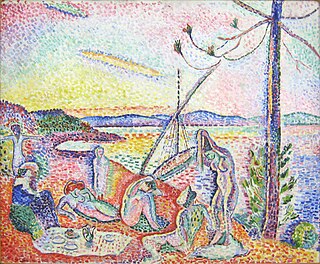
The Société des Artistes Indépendants or Salon des Indépendants was formed in Paris on 29 July 1884. The association began with the organization of massive exhibitions in Paris, choosing the slogan "sans jury ni récompense". Albert Dubois-Pillet, Odilon Redon, Georges Seurat and Paul Signac were among its founders. For the following three decades their annual exhibitions set the trends in art of the early 20th century, along with the Salon d'Automne. This is where artworks were often first displayed and widely discussed. World War I brought a closure to the salon, though the Artistes Indépendants remained active. Since 1920, the headquarters has been located in the vast basements of the Grand Palais.
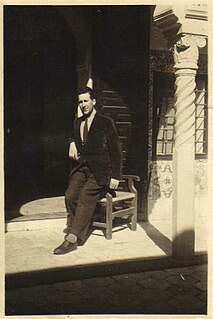
Maurice Boitel was a French painter.
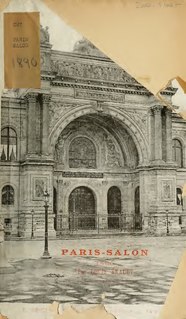
Société Nationale des Beaux-Arts was the term under which two groups of French artists united, the first for some exhibitions in the early 1860s, the second since 1890 for annual exhibitions.

Antoine Chintreuil was a French landscape painter. He was among the starving artists who lived la vie de bohéme in Paris in the 1840s, as popularized by his friend and fellow Bohemian, the novelist Henri Murger. In 1863, he was one of the principal organizers of the Salon des Refusés, which set in motion major reforms in the workings of the annual Paris Salon. He has been called the "great-grandfather of the Impressionists," but Chintreuil himself was never part of a movement, and his paintings, especially the major works from the last decade of his life, remain difficult for critics and art historians to classify. The height of his fame came in the years immediately after his death from tuberculosis in 1873, when his life-partner and fellow artist Jean Desbrosses promoted his legacy with a major book and exhibition in Paris. His reputation later waned, but a large exhibition of his work was mounted in France in 2002, and his works are held in museums across France, with the largest holdings at the Musée d'Orsay.
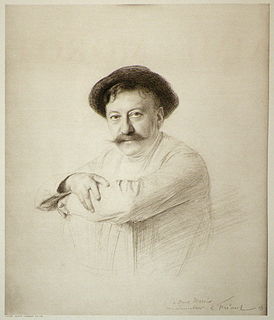
Aimé Nicolas Morot was a French painter and sculptor in the Academic Art style.

The Carrousel du Louvre is an underground shopping mall in Paris, France, managed by Unibail-Rodamco. The name refers to two nearby sites, the Louvre museum and the Place du Carrousel. The mall contains a famous skylight, La Pyramide Inversée, which plays an important role in the best-selling 2003 book The Da Vinci Code.
Claude Le Baube (1919–2007) was a painter and sea captain.
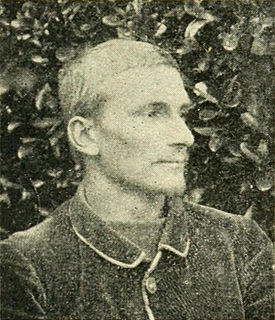
René-Paul Schützenberger was a French Post-Impressionist painter.
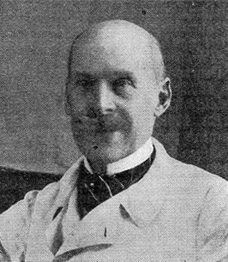
Gaston La Touche, or de La Touche, was a French painter, illustrator, engraver and sculptor.

Victor Edmond Nicolas was a French sculptor.

Henri Clément Serveau, also known as Clément-Serveau, was a French painter, designer, engraver and illustrator. Clément-Serveau produced works in a realist manner early on, but soon became interested in the new movements. He was influenced by his friend Louis Marcoussis and experimented with Cubism, utilising geometric patterns to give the illusion of form and space. Later in his career he turned toward abstraction with a post-cubist stance. He designed banknotes for the Banque de France and produced large murals and participated in numerous French and international exhibitions.
Ary Bitter (1883–1973) was a French artist, best known for his animal sculptures. He was a designer, painter, and sculptor in various mediums including plaster, stone, terracotta and bronze. His work was also produced in biscuit by the Sèvres factory.
Marcel Gaumont was a French sculptor born on 27 January 1880 in Tours. He died in Paris on 20 November 1962.
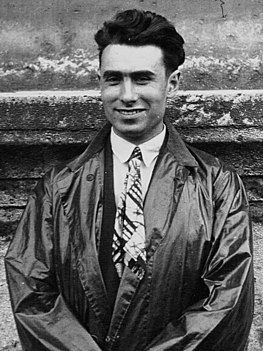
Louis Leygue was a French sculptor and painter. As a sculptor he worked in the traditional stone but also pioneered the use of various metals. He was particularly adept in depicting horses.
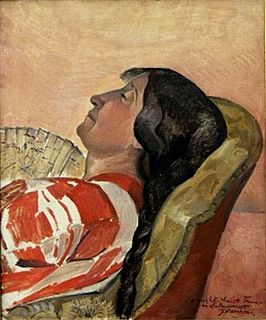
Jeanne-Henriette Tirman was a French woman painter and printmaker.

Andrée Le Coultre was a French painter in the cubist tradition coached by Albert Gleizes. She was born in La Chaux-de-Fonds, Switzerland but spent her entire life in Lyon where her parents moved when she was an infant. She acquired French nationality in 1942 after her marriage to Paul Régny.
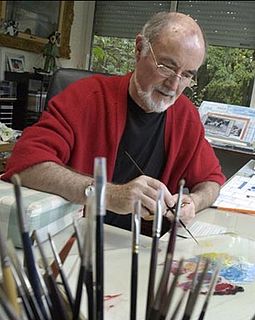
Raphaël Toussaint, is a French painter residing in the Vendée department. Landscape designer, he practices “poetic reality”.